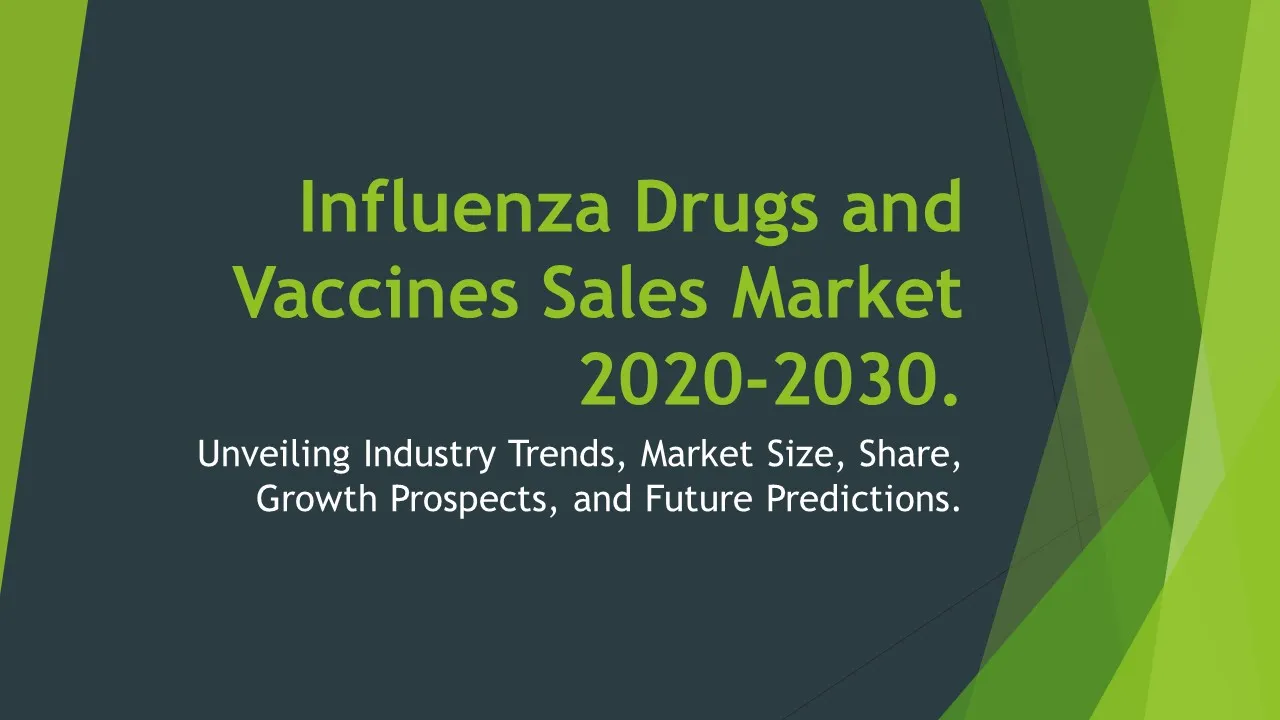Cognition Enhancing Drugs
Cognition Enhancing Drugs Market Segments - by Product Type (Cholinesterase Inhibitors, Nootropics, Ampakines, Racetams, and Others), Application (Alzheimer's Disease, Attention Deficit Hyperactivity Disorder, Memory Enhancement, Cognitive Impairment, and Others), Distribution Channel (Online Pharmacies, Hospital Pharmacies, Retail Pharmacies, Drug Stores, and Others), Ingredient Type (Modafinil, Adderall, Ritalin, Donepezil, and Others), and Region (North America, Europe, Asia Pacific, Latin America, Middle East & Africa) - Global Industry Analysis, Growth, Share, Size, Trends, and Forecast 2025-2035
- Report Preview
- Table Of Content
- Segments
- Methodology
Cognition Enhancing Drugs Market Outlook
The global cognition enhancing drugs market is projected to reach approximately USD 10.12 billion by 2035, growing at a CAGR of around 8.5% from 2025 to 2035. This growth is primarily driven by the rising prevalence of cognitive disorders such as Alzheimer's and ADHD, alongside increasing public interest in cognitive performance enhancement among healthy individuals. The expanding geriatric population, which is more susceptible to cognitive decline, further fuels the demand for these drugs. Additionally, advancements in drug formulations and the increasing acceptance of cognitive enhancers in academic and professional environments contribute to this market's expansion. Furthermore, the growing penetration of online pharmacies as a distribution channel is expected to significantly impact market dynamics in the coming years.
Growth Factor of the Market
One of the significant growth factors propelling the cognition enhancing drugs market is the increasing awareness of cognitive health and enhancement. As more individuals and healthcare professionals recognize the importance of maintaining cognitive functions, there is a growing demand for effective cognitive enhancers. Furthermore, advancements in neuropharmacology and the introduction of new drug classes, such as nootropics and ampakines, have expanded treatment options available for patients and consumers alike. The rise of the digital economy has led to more stress and demands for mental acuity in workplaces, driving professionals to seek cognitive enhancers to boost productivity. Moreover, the growing popularity of healthy lifestyle choices and the focus on mental well-being are resulting in an increased acceptance of cognition-enhancing drugs among the general population. This trend opens up new market opportunities, as companies are encouraged to innovate and develop products that cater to both clinical and non-clinical consumers.
Key Highlights of the Market
- The cognition enhancing drugs market is expected to witness robust growth driven by an aging population and rising cognitive impairment cases.
- Online pharmacies are emerging as a preferred distribution channel due to convenience and accessibility.
- North America holds the largest market share, supported by advanced healthcare infrastructure and increasing research activities.
- Cholinesterase inhibitors and nootropics dominate the product type segment due to their established efficacy in various cognitive disorders.
- Increasing investments in research and development initiatives by pharmaceutical companies are likely to yield innovative cognition-enhancing formulations.
By Product Type
Cholinesterase Inhibitors:
Cholinesterase inhibitors are a prominent category in the cognition enhancing drugs market, primarily used for the treatment of Alzheimer's disease and various forms of dementia. These drugs work by increasing levels of acetylcholine, a neurotransmitter associated with memory and learning. By inhibiting the enzyme cholinesterase, these medications enhance neurotransmitter availability, thereby improving cognitive function in patients. Some of the most commonly prescribed cholinesterase inhibitors include Donepezil, Rivastigmine, and Galantamine. The increasing prevalence of Alzheimer's and dementia globally, coupled with ongoing research into their efficacy, is driving demand for this product type.
Nootropics:
Nootropics, often referred to as "smart drugs," are gaining popularity among healthy individuals seeking to enhance cognitive performance, memory, and focus. These substances are reported to improve mental functions, including memory, creativity, and motivation. Nootropics are available in various forms, including prescription medications and over-the-counter supplements. The rising interest in mental wellness and productivity drives the growth of nootropics in the cognitive enhancement space. As more individuals adopt these cognitive enhancers, the market is expected to expand, attracting more companies to explore this lucrative segment.
Ampakines:
Ampakines represent a newer class of cognition enhancers that work by modulating AMPA receptors in the brain. This mechanism leads to increased synaptic plasticity and improved cognitive functions such as memory and attention. Research is ongoing regarding the potential benefits of ampakines for age-related cognitive decline and neurodegenerative conditions. The interest in this product type is growing, particularly among individuals seeking non-invasive ways to enhance cognitive performance. As clinical trials demonstrate their efficacy, it is anticipated that their incorporation into treatment regimens will become more prevalent, further contributing to market growth.
Racetams:
Racetams, a category of synthetic nootropic compounds, are well-known for their cognitive-enhancing capabilities. These drugs, such as Piracetam and Aniracetam, are thought to improve various aspects of cognition, including memory retention and learning speed. They are commonly utilized by students and professionals looking to boost cognitive performance. The growing body of research supporting their efficacy and safety is anticipated to bolster the acceptance of racetams among healthcare providers and consumers. Additionally, their unique mechanisms of action are expected to lead to the development of new formulations that cater to specific cognitive enhancement needs.
Others:
The "Others" category encapsulates a range of cognition-enhancing substances that do not fall neatly into the aforementioned classifications. This segment includes various herbal supplements and natural products that claim to enhance cognitive function, such as Ginkgo Biloba and Bacopa Monnieri. While these products might not have the same level of regulatory approval as pharmaceuticals, their popularity is growing among consumers seeking natural alternatives for cognitive enhancement. The increasing interest in holistic and natural health solutions is expected to fuel demand within this segment, creating opportunities for product development and market expansion.
By Application
Alzheimer's Disease:
Alzheimer's disease is one of the primary applications for cognition enhancing drugs, particularly cholinesterase inhibitors. As the global prevalence of Alzheimer's continues to rise dramatically due to an aging population, the demand for effective treatments is escalating. These drugs aim to alleviate symptoms and slow the progression of cognitive decline associated with the disease. Research into novel therapies continues, with pharmaceutical companies exploring new formulations that may offer improved efficacy and safety. The urgency to address the growing burden of Alzheimer's is likely to drive significant investment and innovation in this area, ultimately benefiting patients and caregivers.
Attention Deficit Hyperactivity Disorder:
Attention Deficit Hyperactivity Disorder (ADHD) is another major application for cognition enhancing drugs, particularly stimulants and non-stimulants that improve focus and attention. Medications like Adderall and Ritalin are commonly prescribed to individuals diagnosed with ADHD, helping to manage symptoms and improve daily functioning. The increasing recognition of ADHD as a significant public health issue, combined with rising diagnosis rates, is expected to drive continued demand for treatment options. Furthermore, the growing acceptance of ADHD and mental health awareness initiatives are likely to contribute to market growth within this application segment.
Memory Enhancement:
Memory enhancement is a burgeoning application area within the cognition enhancing drugs market, appealing to both clinical and non-clinical consumers. Many individuals, including students and professionals, seek cognitive enhancers to improve memory retention and recall. Nootropics and racetams are often utilized for this purpose, as they are believed to provide cognitive benefits without the side effects commonly associated with prescription medications. As awareness of cognitive enhancement grows, the market for memory enhancement applications is likely to expand, with increasing numbers of consumers seeking safe and effective solutions to boost their cognitive performance.
Cognitive Impairment:
Cognitive impairment encompasses a broad range of conditions, including age-related cognitive decline and neurological disorders. Cognition enhancing drugs are increasingly being utilized to address these issues, offering therapeutic options for individuals experiencing cognitive deficits. The rising prevalence of cognitive impairment, particularly among the aging population, significantly influences the demand for effective treatments. Pharmaceutical companies are investing in research and development to discover new solutions and enhance the efficacy of existing drugs, aiming to meet the growing needs of this population. This application segment represents a critical area for market growth as awareness and diagnosis of cognitive impairment continue to increase.
Others:
The "Others" segment includes various applications for cognition-enhancing drugs, such as mood disorders and general cognitive enhancement for healthy individuals. As more people become aware of the potential benefits of cognitive enhancers, they are increasingly utilizing these products to improve focus, creativity, and overall cognitive function. This segment's growth is driven by a combination of societal pressures to perform at high levels and the increasing availability of safe and effective products. The expansion of this category is indicative of a broader trend toward proactive cognitive health management, with consumers seeking to optimize their mental performance across various settings.
By Distribution Channel
Online Pharmacies:
Online pharmacies have emerged as a major distribution channel for cognition enhancing drugs, providing consumers with convenient access to a wide range of products. The growth of e-commerce in the pharmaceutical sector has facilitated easy purchasing options, allowing patients to obtain their medications discreetly and efficiently. This distribution channel is particularly attractive to younger consumers and those seeking nootropic supplements, as it offers a level of privacy and convenience not found in traditional pharmacies. The COVID-19 pandemic has further accelerated the shift toward online purchasing, solidifying its place as a prominent and growing distribution channel in the cognition enhancing drugs market.
Hospital Pharmacies:
Hospital pharmacies play a crucial role in the distribution of cognition enhancing drugs, particularly for patients receiving treatment for conditions like Alzheimer's or ADHD. Hospital settings offer specialized services, including personalized medication management and patient education, which are essential for effective treatment outcomes. The presence of healthcare professionals in hospital pharmacies ensures that patients receive appropriate prescriptions based on their individual needs and medical histories. As hospitals continue to adapt to the growing demand for cognitive treatments, the importance of hospital pharmacies in the overall distribution landscape is expected to remain significant.
Retail Pharmacies:
Retail pharmacies serve as a traditional and well-established distribution channel for cognition enhancing drugs, offering a variety of prescription and over-the-counter products. Customers can rely on retail pharmacies for their immediate medication needs, as they typically have a wide selection of cognition enhancers available. Pharmacists also provide valuable guidance and support, educating consumers about the appropriate use of these drugs. The convenience of retail pharmacies, coupled with the trusted relationship consumers have with pharmacists, ensures that this distribution channel remains vital in the cognition enhancing drugs market. As healthcare trends evolve, retail pharmacies are likely to adapt their offerings to meet changing consumer demands.
Drug Stores:
Drug stores, which often provide a more extensive range of healthcare products and services than traditional retail pharmacies, have also become significant in the distribution of cognition enhancing drugs. These establishments typically stock not only prescription medications but also a variety of supplements and wellness products aimed at cognitive enhancement. The combination of convenience and a broad product offering makes drug stores an appealing destination for consumers seeking cognition enhancers. As consumer interest in mental wellness and cognitive health grows, drug stores may expand their selections, further solidifying their position in the market.
Others:
The "Others" category in distribution channels includes alternative methods of obtaining cognition enhancing drugs, such as direct sales from manufacturers or specialized health and wellness stores. This segment has gained traction, particularly among consumers seeking niche products or natural cognitive enhancers. As the demand for alternative distribution methods increases, businesses may explore innovative approaches to reach consumers directly, such as subscription services or partnerships with health professionals. This diversification in distribution channels is expected to foster competition and enhance consumer access to cognition enhancing products, driving market growth.
By Ingredient Type
Modafinil:
Modafinil is a well-known cognition enhancing drug primarily prescribed for narcolepsy and other sleep disorders. It is increasingly recognized for its nootropic properties, as it promotes wakefulness and enhances cognitive function without the stimulant side effects commonly associated with traditional stimulants. Many professionals and students have turned to modafinil as a cognitive enhancer, seeking improved focus and productivity. The growing interest in off-label usage for cognitive enhancement has resulted in significant market demand. As research continues to explore its efficacy in various applications, modafinil is expected to maintain a solid presence within the cognition enhancing drugs market.
Adderall:
Adderall, a combination of amphetamine salts, is a widely prescribed medication for Attention Deficit Hyperactivity Disorder (ADHD). It enhances focus and attention by increasing the levels of neurotransmitters in the brain, making it effective for individuals with ADHD. However, its cognitive-enhancing effects have also attracted attention from healthy individuals seeking to improve cognitive performance, particularly among students and professionals. As the stigma surrounding ADHD treatment diminishes and awareness of cognitive enhancement grows, Adderall's market presence is likely to expand. Nonetheless, concerns about misuse and addiction may impact its perception and regulation, influencing its future in the market.
Ritalin:
Ritalin, or methylphenidate, is another stimulant medication commonly prescribed for ADHD. Similar to Adderall, it works by increasing neurotransmitter activity in the brain, thereby enhancing focus and attention. Ritalin is frequently used among students and professionals looking to improve cognitive performance, prompting interest in its off-label use as a cognitive enhancer. The growing awareness of mental health issues and the increasing prevalence of ADHD diagnoses contribute to Ritalin's demand. As healthcare providers continue to explore the therapeutic benefits and potential risks associated with this drug, its role in the cognition enhancing drugs market is expected to evolve.
Donepezil:
Donepezil is a cholinesterase inhibitor primarily used in the treatment of Alzheimer's disease. By increasing acetylcholine levels in the brain, it helps alleviate the cognitive symptoms associated with dementia. As the prevalence of Alzheimer's continues to rise, Donepezil's market demand is expected to grow in tandem. Its established safety profile and efficacy make it a preferred option for healthcare providers managing Alzheimer's patients. Ongoing research into its potential benefits for other cognitive disorders is likely to further expand its application scope, solidifying its position within the cognition enhancing drugs market.
Others:
The "Others" segment comprises a diverse range of cognition enhancing ingredients that do not fit into the aforementioned categories. This includes various herbal supplements and natural compounds, such as Ginkgo Biloba and Bacopa Monnieri, known for their cognitive-enhancing properties. Although these products may lack the rigorous clinical validation of pharmaceutical options, they are gaining popularity among health-conscious consumers seeking natural alternatives for cognitive enhancement. As the demand for holistic health solutions continues to rise, this segment is expected to expand, presenting significant opportunities for product development and market growth.
By Region
The global cognition enhancing drugs market is predominantly driven by the North American region, which holds the largest market share due to factors such as advanced healthcare infrastructure, high prevalence rates of cognitive disorders, and substantial investments in research and development. The growing awareness of cognitive health and the increasing acceptance of cognitive enhancers among the general population contribute to North America's robust market presence. Furthermore, the availability of a wide range of prescription drugs and over-the-counter cognitive enhancers bolsters the region's growth, resulting in a projected CAGR of approximately 7.5% through 2035.
Europe follows closely behind North America, representing a significant portion of the cognition enhancing drugs market. The increasing aging population in countries like Germany, France, and the United Kingdom, combined with rising awareness of cognitive decline, drives demand for effective treatment options such as cholinesterase inhibitors and nootropics. Additionally, favorable regulations and a growing emphasis on mental wellness contribute to the market's expansion in this region. The Asia Pacific region is also emerging as a key player, with a rapidly growing demand for cognition enhancing drugs driven by the increasing prevalence of cognitive disorders and rising disposable incomes. As awareness and healthcare access improve in this region, the cognition enhancing drugs market is set to witness significant growth opportunities.
Opportunities
The cognition enhancing drugs market presents numerous opportunities for companies to innovate and expand their product offerings. As consumer awareness regarding mental health and cognitive enhancement increases, there is a growing demand for safe and effective products. This trend encourages pharmaceutical companies to invest in research and development efforts aimed at discovering new formulations that cater to diverse consumer needs, including those seeking natural or alternative solutions. The advent of technological advancements, particularly in drug delivery systems, can lead to improved efficacy and convenience for consumers. Moreover, the rise of personalized medicine creates the potential for tailored cognitive enhancement therapies that consider individual patient needs and genetic profiles, further driving market growth.
Another key opportunity lies in the expansion of online and telehealth platforms, which have become increasingly significant, especially following the COVID-19 pandemic. By establishing a strong online presence, companies can reach a broader consumer base, providing them with convenient access to cognition enhancing drugs. These platforms also enable healthcare professionals to offer virtual consultations, ensuring that patients receive appropriate guidance when selecting cognitive enhancers. Additionally, companies can leverage social media and digital marketing strategies to promote awareness of cognition-enhancing products and drive sales. As the market continues to evolve, embracing innovative distribution channels and digital engagement strategies will be vital for companies eager to capitalize on the opportunities present in this dynamic sector.
Threats
Despite the growth prospects in the cognition enhancing drugs market, several threats could hinder its expansion. One of the most significant concerns is the rising incidence of drug misuse and abuse, particularly among young adults and students. The non-medical use of prescription stimulants, such as Adderall and Ritalin, poses risks to both public health and regulatory scrutiny, leading to increased restrictions on their availability. Additionally, there is a growing awareness of potential side effects associated with cognition-enhancing drugs, which may lead to public skepticism and hesitancy to adopt these treatments. Companies operating in this market must navigate these challenges to maintain consumer trust and ensure the responsible marketing of their products.
Furthermore, the cognitive enhancing drugs market faces regulatory hurdles regarding product approvals and safety evaluations. As governments and regulatory bodies ramp up scrutiny over pharmaceuticals, particularly those associated with cognitive enhancement, companies may experience delays in bringing their products to market. This increased regulatory burden can result in higher operational costs and reduced profit margins. The constantly changing legal landscape surrounding cognitive enhancers necessitates that companies stay informed and adapt to evolving regulations to mitigate potential risks. Overall, while the market presents significant opportunities, the associated threats require strategic planning and proactive measures to address potential challenges effectively.
Competitor Outlook
- Johnson & Johnson
- Pfizer Inc.
- Eli Lilly and Company
- Novartis AG
- Roche
- GlaxoSmithKline plc
- Teva Pharmaceutical Industries Ltd.
- H. Lundbeck A/S
- Otsuka Pharmaceutical Co., Ltd.
- Shire Pharmaceuticals
- Amgen Inc.
- Neurotrope, Inc.
- Smart Pill Technologies
- Cambridge Cognition
- Merck & Co., Inc.
The competitive landscape of the cognition enhancing drugs market is characterized by a mix of established pharmaceutical companies and emerging players focused on innovative solutions. Major players like Johnson & Johnson and Pfizer Inc. lead the market by investing heavily in research and development to create advanced formulations targeting specific cognitive disorders. Their extensive portfolios and global reach enable them to capture a significant market share, while ongoing collaborations with research institutions help foster innovation. The competitive environment is also influenced by the rising trend of personalized medicine, prompting companies to pivot towards developing tailored cognitive enhancement therapies that cater to individual patient needs.
Moreover, the market is witnessing the entry of smaller biotechnology firms and startups that specialize in nootropics and alternative cognitive enhancers. Companies such as Neurotrope, Inc. and Smart Pill Technologies are innovating within this niche by developing natural supplements and proprietary formulations aimed at enhancing cognitive performance. These emerging players are capitalizing on the growing consumer interest in natural cognitive enhancers and the increasing acceptance of alternative treatments. Partnerships and collaborations can be expected as these companies seek to leverage the experience and market presence of established firms to accelerate growth and expand their reach.
Additionally, the growing focus on mental health and well-being is driving companies to diversify their product offerings, with many firms exploring the development of combination therapies that address both cognitive enhancement and emotional well-being. As the market continues to evolve, competition will intensify as companies strive to differentiate their products and create unique value propositions. Regulatory compliance and product safety will also play crucial roles in shaping competitive strategies, as consumers seek trustworthy products backed by clinical evidence. With a dynamic and rapidly changing landscape, companies must remain agile and adaptable to the shifting demands of consumers and the broader market.
1 Appendix
- 1.1 List of Tables
- 1.2 List of Figures
2 Introduction
- 2.1 Market Definition
- 2.2 Scope of the Report
- 2.3 Study Assumptions
- 2.4 Base Currency & Forecast Periods
3 Market Dynamics
- 3.1 Market Growth Factors
- 3.2 Economic & Global Events
- 3.3 Innovation Trends
- 3.4 Supply Chain Analysis
4 Consumer Behavior
- 4.1 Market Trends
- 4.2 Pricing Analysis
- 4.3 Buyer Insights
5 Key Player Profiles
- 5.1 Roche
- 5.1.1 Business Overview
- 5.1.2 Products & Services
- 5.1.3 Financials
- 5.1.4 Recent Developments
- 5.1.5 SWOT Analysis
- 5.2 Amgen Inc.
- 5.2.1 Business Overview
- 5.2.2 Products & Services
- 5.2.3 Financials
- 5.2.4 Recent Developments
- 5.2.5 SWOT Analysis
- 5.3 Novartis AG
- 5.3.1 Business Overview
- 5.3.2 Products & Services
- 5.3.3 Financials
- 5.3.4 Recent Developments
- 5.3.5 SWOT Analysis
- 5.4 Pfizer Inc.
- 5.4.1 Business Overview
- 5.4.2 Products & Services
- 5.4.3 Financials
- 5.4.4 Recent Developments
- 5.4.5 SWOT Analysis
- 5.5 H. Lundbeck A/S
- 5.5.1 Business Overview
- 5.5.2 Products & Services
- 5.5.3 Financials
- 5.5.4 Recent Developments
- 5.5.5 SWOT Analysis
- 5.6 Neurotrope, Inc.
- 5.6.1 Business Overview
- 5.6.2 Products & Services
- 5.6.3 Financials
- 5.6.4 Recent Developments
- 5.6.5 SWOT Analysis
- 5.7 Johnson & Johnson
- 5.7.1 Business Overview
- 5.7.2 Products & Services
- 5.7.3 Financials
- 5.7.4 Recent Developments
- 5.7.5 SWOT Analysis
- 5.8 Merck & Co., Inc.
- 5.8.1 Business Overview
- 5.8.2 Products & Services
- 5.8.3 Financials
- 5.8.4 Recent Developments
- 5.8.5 SWOT Analysis
- 5.9 Cambridge Cognition
- 5.9.1 Business Overview
- 5.9.2 Products & Services
- 5.9.3 Financials
- 5.9.4 Recent Developments
- 5.9.5 SWOT Analysis
- 5.10 GlaxoSmithKline plc
- 5.10.1 Business Overview
- 5.10.2 Products & Services
- 5.10.3 Financials
- 5.10.4 Recent Developments
- 5.10.5 SWOT Analysis
- 5.11 Eli Lilly and Company
- 5.11.1 Business Overview
- 5.11.2 Products & Services
- 5.11.3 Financials
- 5.11.4 Recent Developments
- 5.11.5 SWOT Analysis
- 5.12 Shire Pharmaceuticals
- 5.12.1 Business Overview
- 5.12.2 Products & Services
- 5.12.3 Financials
- 5.12.4 Recent Developments
- 5.12.5 SWOT Analysis
- 5.13 Smart Pill Technologies
- 5.13.1 Business Overview
- 5.13.2 Products & Services
- 5.13.3 Financials
- 5.13.4 Recent Developments
- 5.13.5 SWOT Analysis
- 5.14 Otsuka Pharmaceutical Co., Ltd.
- 5.14.1 Business Overview
- 5.14.2 Products & Services
- 5.14.3 Financials
- 5.14.4 Recent Developments
- 5.14.5 SWOT Analysis
- 5.15 Teva Pharmaceutical Industries Ltd.
- 5.15.1 Business Overview
- 5.15.2 Products & Services
- 5.15.3 Financials
- 5.15.4 Recent Developments
- 5.15.5 SWOT Analysis
- 5.1 Roche
6 Market Segmentation
- 6.1 Cognition Enhancing Drugs Market, By Application
- 6.1.1 Alzheimer's Disease
- 6.1.2 Attention Deficit Hyperactivity Disorder
- 6.1.3 Memory Enhancement
- 6.1.4 Cognitive Impairment
- 6.1.5 Others
- 6.2 Cognition Enhancing Drugs Market, By Product Type
- 6.2.1 Cholinesterase Inhibitors
- 6.2.2 Nootropics
- 6.2.3 Ampakines
- 6.2.4 Racetams
- 6.2.5 Others
- 6.3 Cognition Enhancing Drugs Market, By Ingredient Type
- 6.3.1 Modafinil
- 6.3.2 Adderall
- 6.3.3 Ritalin
- 6.3.4 Donepezil
- 6.3.5 Others
- 6.4 Cognition Enhancing Drugs Market, By Distribution Channel
- 6.4.1 Online Pharmacies
- 6.4.2 Hospital Pharmacies
- 6.4.3 Retail Pharmacies
- 6.4.4 Drug Stores
- 6.4.5 Others
- 6.1 Cognition Enhancing Drugs Market, By Application
7 Competitive Analysis
- 7.1 Key Player Comparison
- 7.2 Market Share Analysis
- 7.3 Investment Trends
- 7.4 SWOT Analysis
8 Research Methodology
- 8.1 Analysis Design
- 8.2 Research Phases
- 8.3 Study Timeline
9 Future Market Outlook
- 9.1 Growth Forecast
- 9.2 Market Evolution
10 Geographical Overview
- 10.1 Europe - Market Analysis
- 10.1.1 By Country
- 10.1.1.1 UK
- 10.1.1.2 France
- 10.1.1.3 Germany
- 10.1.1.4 Spain
- 10.1.1.5 Italy
- 10.1.1 By Country
- 10.2 Asia Pacific - Market Analysis
- 10.2.1 By Country
- 10.2.1.1 India
- 10.2.1.2 China
- 10.2.1.3 Japan
- 10.2.1.4 South Korea
- 10.2.1 By Country
- 10.3 Latin America - Market Analysis
- 10.3.1 By Country
- 10.3.1.1 Brazil
- 10.3.1.2 Argentina
- 10.3.1.3 Mexico
- 10.3.1 By Country
- 10.4 North America - Market Analysis
- 10.4.1 By Country
- 10.4.1.1 USA
- 10.4.1.2 Canada
- 10.4.1 By Country
- 10.5 Middle East & Africa - Market Analysis
- 10.5.1 By Country
- 10.5.1.1 Middle East
- 10.5.1.2 Africa
- 10.5.1 By Country
- 10.6 Cognition Enhancing Drugs Market by Region
- 10.1 Europe - Market Analysis
11 Global Economic Factors
- 11.1 Inflation Impact
- 11.2 Trade Policies
12 Technology & Innovation
- 12.1 Emerging Technologies
- 12.2 AI & Digital Trends
- 12.3 Patent Research
13 Investment & Market Growth
- 13.1 Funding Trends
- 13.2 Future Market Projections
14 Market Overview & Key Insights
- 14.1 Executive Summary
- 14.2 Key Trends
- 14.3 Market Challenges
- 14.4 Regulatory Landscape
Segments Analyzed in the Report
The global Cognition Enhancing Drugs market is categorized based on
By Product Type
- Cholinesterase Inhibitors
- Nootropics
- Ampakines
- Racetams
- Others
By Application
- Alzheimer's Disease
- Attention Deficit Hyperactivity Disorder
- Memory Enhancement
- Cognitive Impairment
- Others
By Distribution Channel
- Online Pharmacies
- Hospital Pharmacies
- Retail Pharmacies
- Drug Stores
- Others
By Ingredient Type
- Modafinil
- Adderall
- Ritalin
- Donepezil
- Others
By Region
- North America
- Europe
- Asia Pacific
- Latin America
- Middle East & Africa
Key Players
- Johnson & Johnson
- Pfizer Inc.
- Eli Lilly and Company
- Novartis AG
- Roche
- GlaxoSmithKline plc
- Teva Pharmaceutical Industries Ltd.
- H. Lundbeck A/S
- Otsuka Pharmaceutical Co., Ltd.
- Shire Pharmaceuticals
- Amgen Inc.
- Neurotrope, Inc.
- Smart Pill Technologies
- Cambridge Cognition
- Merck & Co., Inc.
- Publish Date : Jan 21 ,2025
- Report ID : PH-66237
- No. Of Pages : 100
- Format : |
- Ratings : 4.5 (110 Reviews)









